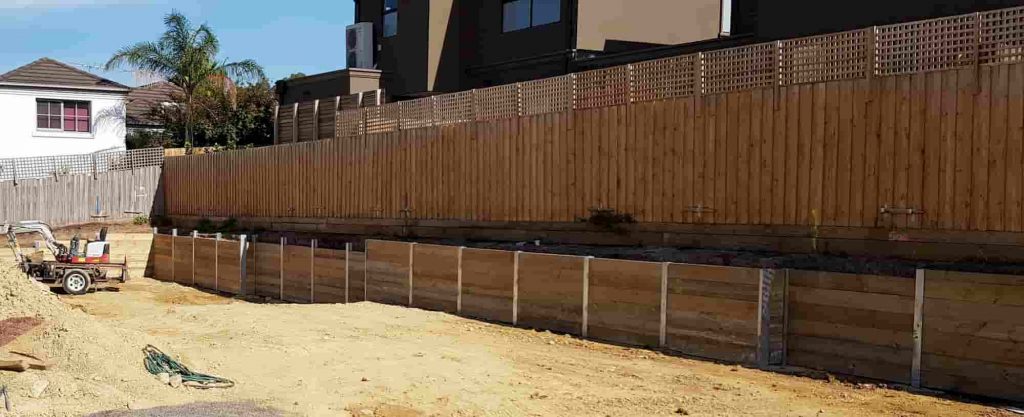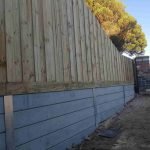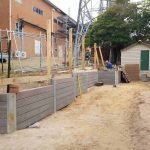Introduction
Collaborating with a retaining wall builder is an important element of making sure that your project is executed effortlessly. A well-constructed keeping wall not just improves the aesthetic appeal of your property however also offers necessary structural assistance. Whether you're thinking about a concrete sleeper, H beam, wood sleeper, timber sleeper, and even a natural stone wall, effective communication and collaboration with your picked retaining wall contractor can make all the difference.
In this thorough guide, we will check out numerous techniques and suggestions on how to collaborate efficiently with your retaining wall builder. With over 6000 words of insights, this article is developed to equip you with the knowledge you require for an effective partnership.
What is a Maintaining Wall?
Definition and Purpose
A keeping wall is a structure created to keep back soil and prevent disintegration. It's typically used in landscaping to develop level locations on slopes and can serve both practical and visual purposes. Understanding the function of these walls is vital when discussing cooperation with your builder.

Types of Maintaining Walls
Gravity Walls: These depend on their weight to withstand the pressure from behind. Cantilever Walls: These utilize utilize, including a thin stem connected to a base slab. Sheet Stacking Walls: Typically made from steel or vinyl, these are ideal for tight spaces. Anchored Walls: These use cable televisions anchored in the soil for included support.Material Alternatives for Retaining Walls
- Concrete Sleepers Wood Sleepers Timber Sleepers Stone
Each product has its unique advantages and obstacles, which will affect your discussions with your retaining wall builder.
How to Work together Effectively with Your Retaining Wall Builder
When embarking on your job, developing clear lines of communication with your retaining wall installer is vital. Here are some strategies:
Initial Consultation
http://jasperfencebuilderbusinessiarb760.yousher.com/the-impact-of-weather-condition-on-your-retaining-wall-installation-strategyBefore any work starts, arrange a preliminary consultation with your home builder. Discuss your vision, budget, and any restraints. This meeting sets the structure for efficient collaboration.
Understanding Your Vision
Communicate plainly about what you visualize for your retaining wall project. Consider aspects such as height, products (like concrete sleepers or stone), color design, and landscape style elements.
Setting Realistic Expectations
Discuss timelines and expenses upfront. It's essential to understand that unanticipated challenges may occur during building and construction that might postpone completion or increase costs.
Choosing the Right Products Together
Engage in conversations about the best materials fit for your task's needs-- whether it be concrete sleepers for durability or wood sleepers for aesthetics.
Table 1: Contrast of Common Retaining Wall Materials
|Product|Toughness|Aesthetic Appeal|Cost|| -----------------|------------|------------------|----------|| Concrete Sleeper|High|Moderate|$$$|| Wood Sleeper|Moderate|High|$$|| Timber Sleeper|Moderate|Really High|$$$$|| Stone|Really High|Exceptionally High|$$$$$|
Establishing Communication Channels
Regular updates are vital during construction. Establish preferred approaches of communication-- whether through e-mail, telephone call, or site meetings-- to guarantee everybody stays informed.
Addressing Concerns Promptly
If problems develop throughout construction-- such as soil instability or design modifications-- resolve them rapidly with your professional to avoid complications down the line.
Creating an Effective Task Timeline
Breaking Down Phases of Construction
Work together to lay out essential stages in the construction procedure:
Site Preparation Material Acquisition Installation Final InspectionThese stages develop a clear blueprint for both celebrations involved.
Allocating Time Buffers For Delays
It's a good idea to include time buffers in case unpredicted circumstances occur throughout construction, particularly concerning weather delays or product shortages.
Budget Management Tips for Your Retaining Wall Project
Collaborative budgeting is necessary:
Defining Your Budget plan Clearly
Set out a preliminary budget plan range but remain flexible sufficient to represent unexpected expenses that might develop during construction.
Cost Breakdown by Phases
Break down costs by stage so that both you and your contractor comprehend where funds are being assigned at each phase of the project.
Ensuring Quality Craftsmanship from Your Builder
Understanding Building regulations and Regulations
Ensure that both you and your builder recognize with local building regulations related to maintaining walls; compliance is non-negotiable!
Regular Site Assessments Together
Schedule regular check outs to keep track of development collectively; this makes sure quality assurance while enabling you to voice issues right away if something doesn't meet standards.

The Role of Licenses in Building Projects
Before beginning any work:
Securing Needed Licenses Together
Discuss which allows may be required based upon local policies-- this may vary depending upon whether you're using lumber sleepers or stone materials.
Emphasizing Security Procedures Throughout Construction
Both celebrations ought to prioritize precaution:
Understanding Safety Standards Together
Familiarize yourselves with security protocols needed during setup; this includes wearing protective gear and making sure devices runs securely around workers.
Post-Construction Cooperation Tips
Once setup is total:

Conducting Last Walkthroughs Together
Perform an inspection together after conclusion; this ensures everything satisfies expectations before last payment occurs.
Maintenance Factors to consider Post-Installation
Discuss ongoing care requirements specific to picked materials like lumber sleepers which require more upkeep than concrete options.
FAQs About Working together With Your Retaining Wall Builder
What should I discuss in my initial meeting? - Focus on budgetary concerns, product choices (like wood versus stone), and overall design vision. How do I pick in between various kinds of retaining walls? - Consider website conditions, preferred aesthetics, durability needs (e.g., concrete vs lumber), and budget plan constraints. What products are best suited for my project? - Depending on use-case circumstances such as wetness direct exposure levels-- concrete sleepers may offer longevity while wood includes appeal. How frequently needs to I interact with my builder? - Regular updates every couple weeks assist keep tasks running efficiently; adjust frequency based on development levels. Are there specific building regulations I need to consider? - Yes! Local regulations differ commonly so research study thoroughly beforehand guaranteeing compliance throughout whole develop process! What upkeep does my new retaining wall need post-installation? - Maintenance varies relying on materials chosen-- from easy cleaning routines up through periodic evaluations assessing stability & & wear!Conclusion
Collaborating effectively with your retaining wall builder hinges upon clear communication, sensible expectations, good understanding concerning materials used(like timber versus concrete sleepers), maintaining open dialogue throughout all stages-- from planning through execution-- eventually leading towards successful results!
By following these guidelines detailed above-- involving prompt assessments relating to budgets/safety regulations/maintenance-- you'll find yourself fully equipped not only preserve harmony within teamwork however also attain resulting structures showcasing both charm & strength against nature's forces!